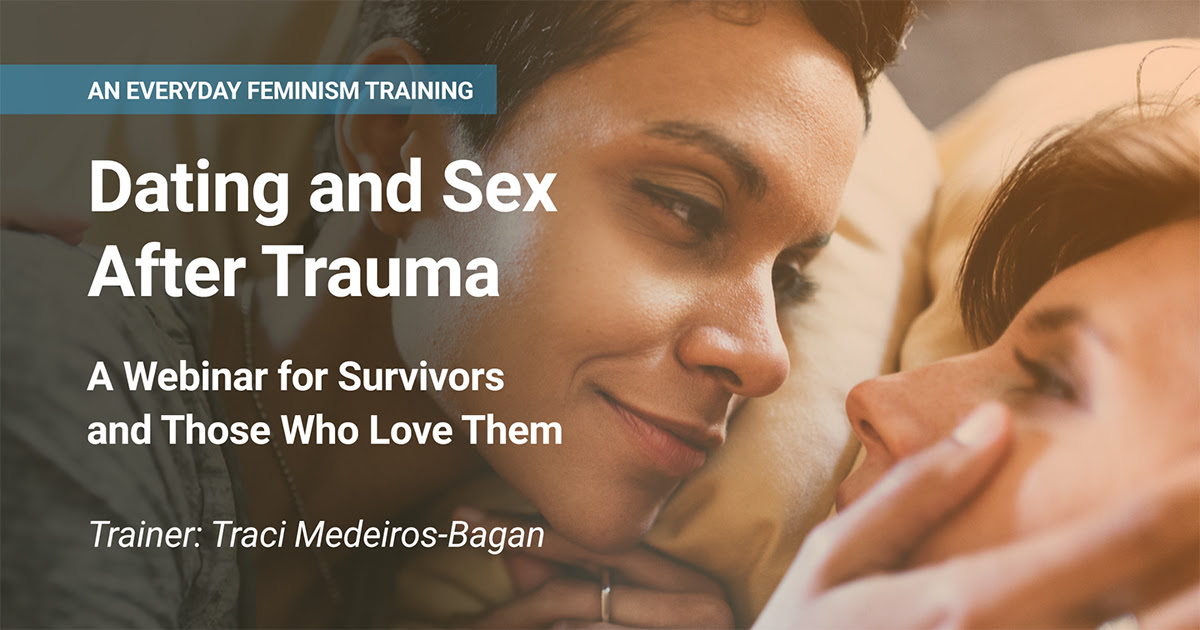EVERYDAY FEMINISM's SCHOOL FOR SOCIAL JUSTICE
I'm really honored to be a trainer at Everyday Feminism's School for Social Justice! Click on the webinar banners below to learn more about the courses and get signed up!
Reclaim your right to pleasure in your body and connection in your relationships.
“In touch with the erotic, I become less willing to accept powerlessness, or those other supplied states of being which are not native to me, such as resignation, despair, self-effacement, depression, self-denial.”
- Audre Lorde, Uses of the Erotic: The Erotic as Power, Sister Outsider
Do you struggle to build and create nurturing relationships, or struggle to trust them once they’re established? Has it ever been hard to stay present during sex or are there things your lover does that incite terror or rage for seemingly no particular reason?
Has it been challenging to practice clear consent with yourself, or communicate your needs and boundaries to a partner? Do you have a lurking suspicion you don’t deserve the enjoyment of sexuality and connection?
Trauma can literally change our physiology in ways that make our bodies and brains believe that we are living in the past. It organizes our lives from a place of defense and survival, and relinquishes our right to joy and thriving.
If you’re a survivor, this webinar will help you start to untangle the complicated effects of trauma on your sexual wellness and relationships. It will give you a framework for using triggers as guideposts rather than stop signs on the road to healing.
If you are dating a survivor, this webinar will offer insight into how to support your partner’s healing without taking responsibility for the causes of it. And if you are both survivor and ally, having found a loving reflection in this sometimes challenging world, you will leave this webinar ready to start building intimacy from a place of healthy differentiation.
The work of healing from trauma to reclaim our right to pleasure in our bodies and connection in our relationships is complicated, yet profound. Nurturing our ability to engage in a safe and empowering way with dating and sex can be both the agent of change in our healing and a symbol of the healing itself.
ready to start the healing process?
Challenge Toxic Relationship Beliefs & Understand What’s Right For You
“Loving openly and freely is a political act. Put together your own vision of an ideal relationship, resculpt your own belief system, redefine the potential of a friendship, imagine a thousand ways to make love to yourself and anyone you care about. And while you’re at it, re-invent your gender, sexual preferences and orientation. Radicalize your relationship by imagining your wildest ideal partnership together.”
-Wendy O’Matik, Redefining Our Relationships
The visibility and acceptance of open relationships is increasing. They’ve always been around in formal and informal ways, but running into them is becoming much more common. You’ll find folks of every sexual orientation and gender identity exploring different formats, and even finding pride in labeling their relationships in alternative ways.
But does non-monogamy live up to the radical hype?
Our relationships, non-monogamous or otherwise, are as radical as we are conscious. Ethical and intersectional non-monogamy asks us to move into our relationships with compassion, equality, and consent.
If we move into non-monogamy consciously, these alternative relationship styles challenge us to listen to our hearts and our partner(s) when something feels off. They allow us to evolve as needed rather than remaining stuck.
The truth is that there isn't one right way to be in a relationship — but society sure teaches us that there is.
This belief can have a wide range of effects on our lives. It can make us question the value of a relationship if it isn’t following the expected monogamous trajectory towards marriage (even if it’s fulfilling to us.) It can force us to place those closest to us on a value hierarchy scale that privileges romantic relationships over platonic ones. It can even romanticize jealousy and create unhealthy expectations around our partners being responsible for our happiness.
This webinar is for you if:
You’re interested in non-monogamy but have no idea where to start.
You like someone who is non-monogamous.
You’re firmly monogamous but want to re-examine your beliefs about relationships.
You’re in a non-monogamous relationship but are noticing that similar oppressive structures/expectations are still present.
You struggle with jealousy in all of your relationships.
Your heart has just burst open because you fell in love twice in the same day!
In a time where fear, disconnection, and lack of empathy seem to be the status quo, this workshop is an invitation into a different way of thinking about love and relationships.
It will challenge our beliefs about power, priorities, jealousy and scarcity, and it will offer a framework of faith in abundance that is informed by accountability. We’ll discuss functional ways to communicate, make commitments, and work through the emotions that come along with re-defining the rules of love.


